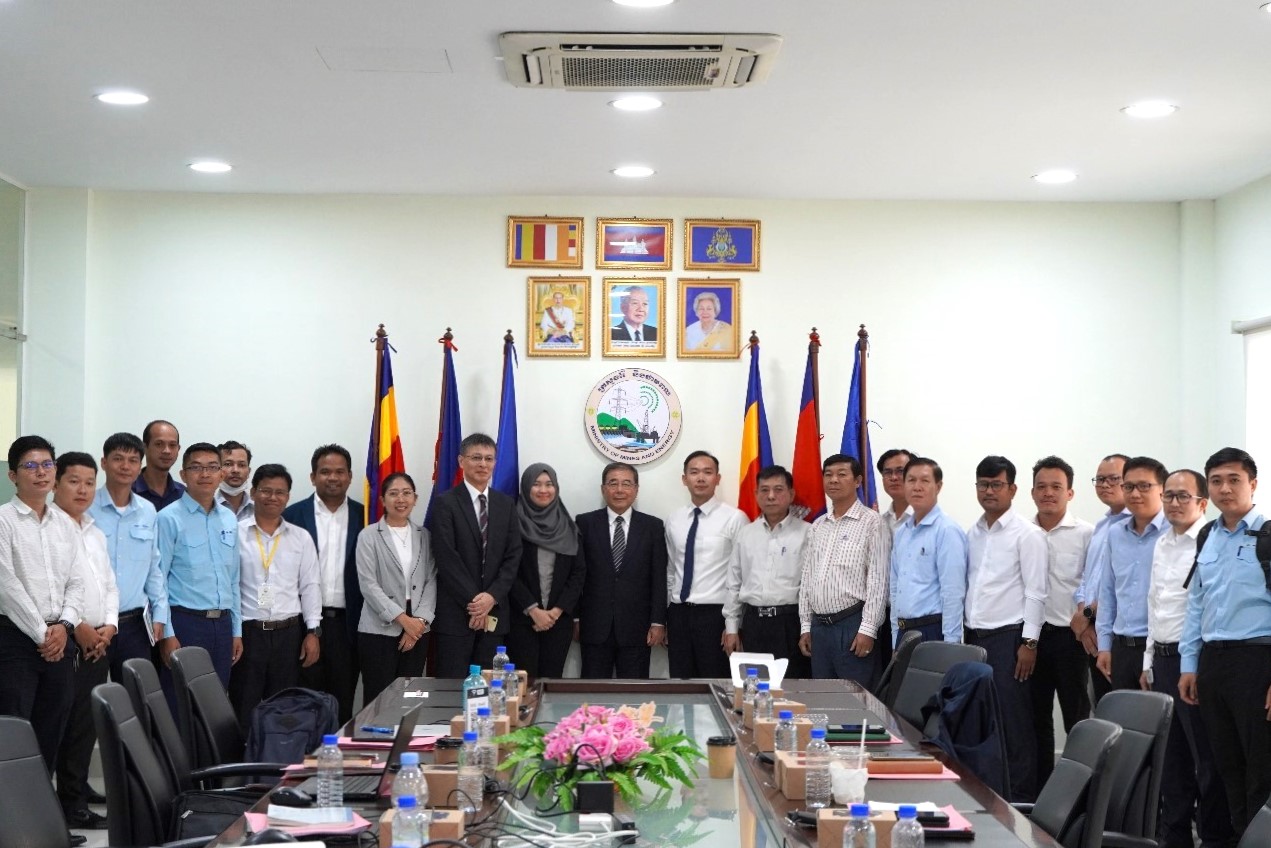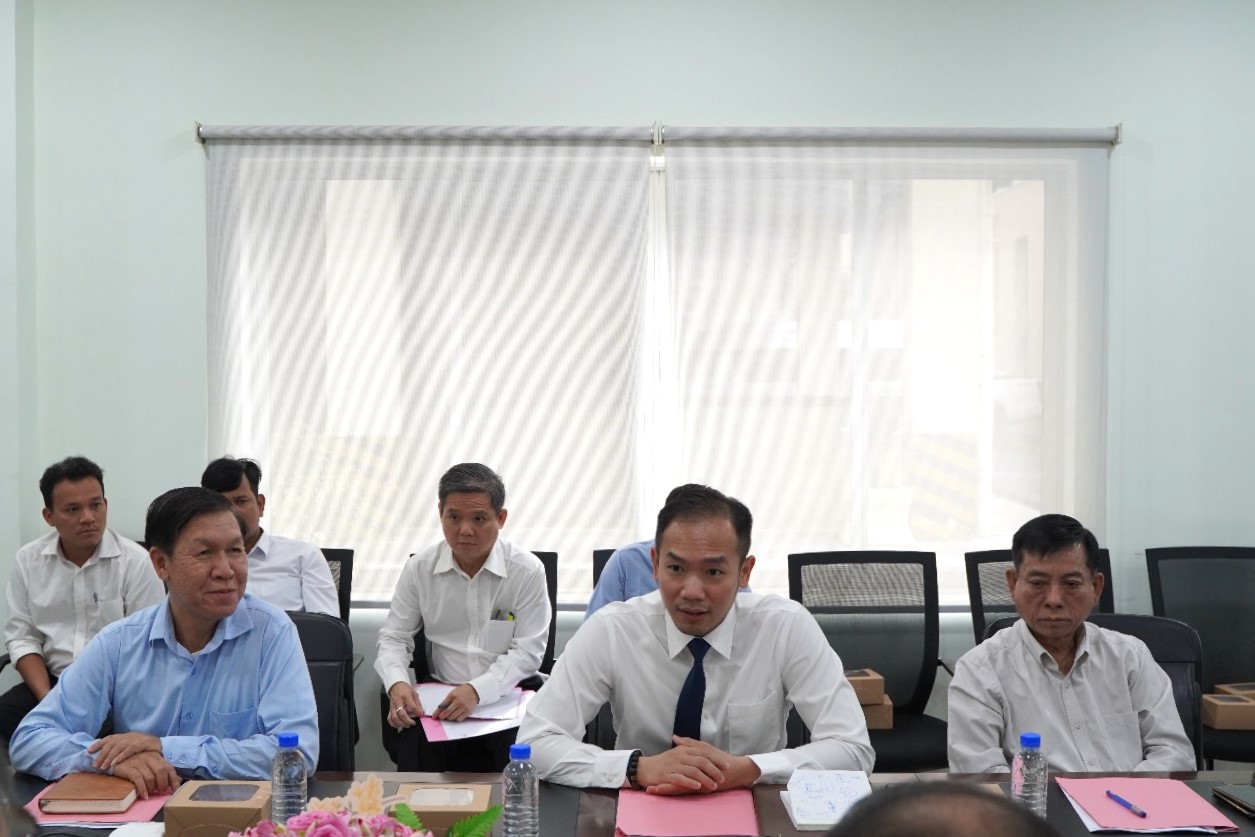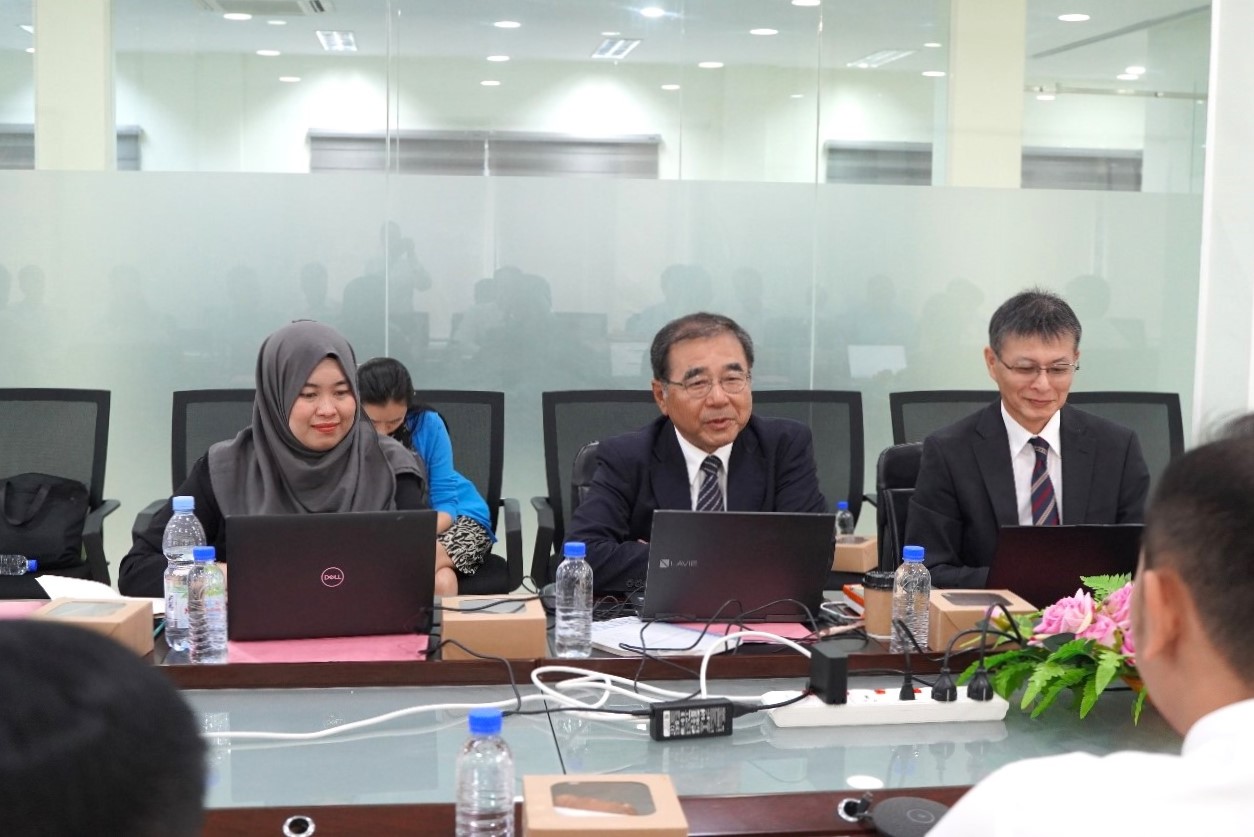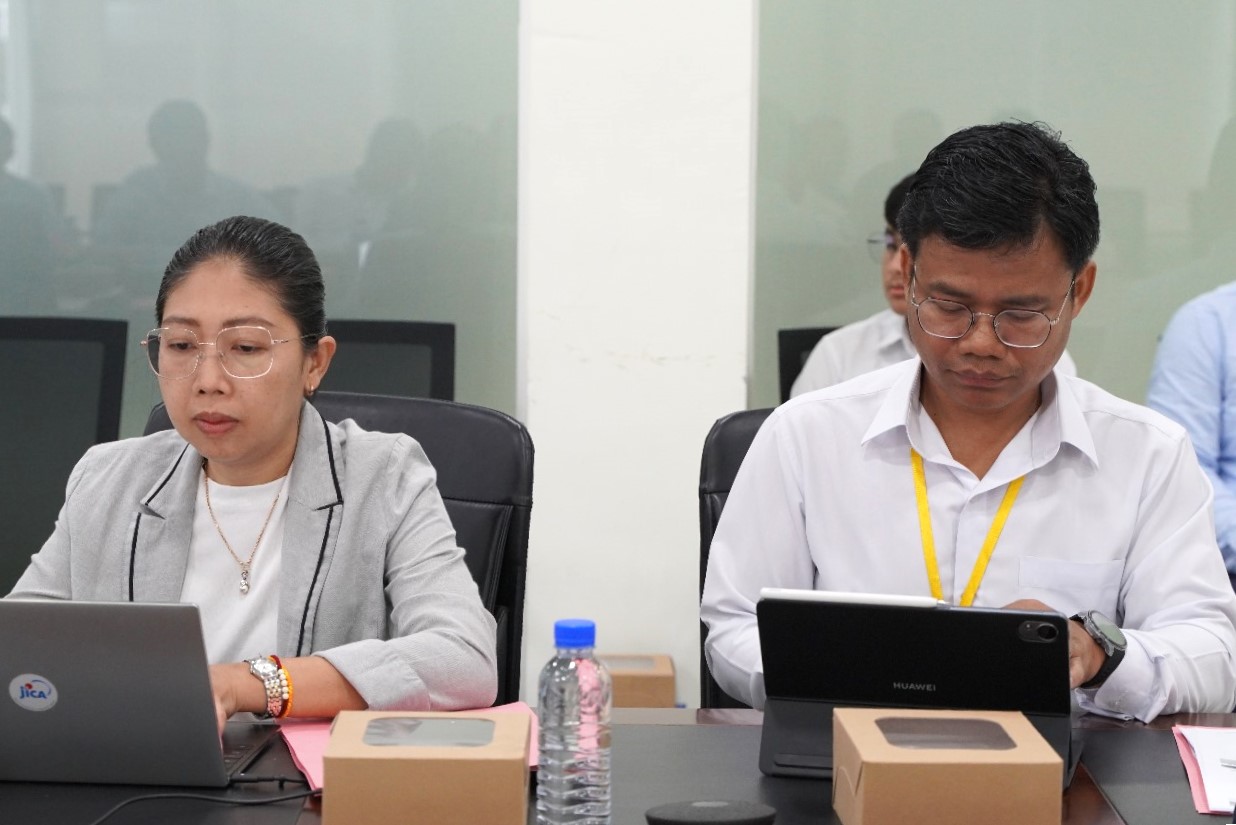Menu

Photo 1. Participants of the AJEEP Scheme 4 Country Visit Meeting to Cambodia
The ASEAN Centre for Energy (ACE), in collaboration with the Energy Conservation Center Japan (ECCJ), conducted a country visit to Cambodia under the ASEAN-Japan Energy Efficiency Partnership (AJEEP) Scheme 4. The meeting was held on 8 October 2024 at the Ministry of Mines and Energy (MME) Headquarters, Phnom Penh, Cambodia. Participants included officials from MME, Electricite du Cambodege (EDC), Electricity Authority of Cambodia (EAC), Institute of Technology of Cambodia (ITC), Green Move Consulting Company, ACE, and ECCJ.
AJEEP is a regional cooperation initiative between ASEAN and Japan, implemented by ACE and ECCJ, supported by the Ministry of Economy, Trade, and Industry (METI) of Japan. This initiative aims to strengthen Energy Efficiency and Conservation (EE&C) policies and practices in the region through capacity building. AJEEP is currently in its Scheme 4 and 5 phases, with Scheme 4 focusing on supporting the development and implementation of the Sustainable ASEAN Energy Management Certification Scheme (SAEMAS).
The country visit to Cambodia is part of AJEEP Scheme 4 activities which aims to disseminate the progress on the development of the Sustainable ASEAN Energy Management Certification Scheme (SAEMAS), discuss updates and progress on the energy management certification program with Cambodian stakeholders and institutions, and discuss strategic steps to integrate SAEMAS into the existing national certification program. The meeting was led by Dr. Chhuon Sambath Ratanak, Director of Department of Technique and Energy Business Policy, General Department of Energy, MME.

Photo 2. (Middle) Dr. Chhuon Sambath Ratanak, Director of Department of Technique and Energy Business Policy of MME Cambodia, leading the Meeting.
The meeting commenced with Takakazu Oikawa from ECCJ presenting the results of the 10-year AJEEP Scheme 3, which concluded in 2021. The scheme aimed to support the development of S&L operations and Energy Management Systems (EnMS) in Cambodia through local training and workshops. Key achievements include establishing an EnMS Model Project in 2019 and finalising the Sub-Decree on Energy Efficiency Standards and Labeling for Electrical Appliances and Equipment by the Ministry of Mines and Energy. Followed by the ACE presentation, Mardika Firlina, Associate Officer of Energy Efficiency and Conservation (CEE) Department at ACE, shared the positioning of the SAEMAS regional system within the APAEC Phase II and provided a comparative analysis of energy management system policies, certifications schemes, and competencies across ASEAN nations.

Photo 3. Mardika Firlina, Associate Officer of CEE Department at ACE, Dr. Yoshitaka Ushio, Senior Adviser from ECCJ, and Takakazu Oikawa, Senior Adviser from ECCJ.
The meeting continued with MME presenting the national target under the National Energy Efficiency Policy 2022-2030 (NEEP), including the status of Energy Efficiency Standards and Labeling and the status of the Energy Management Program. MME highlighted the achievement of having the Prakas on the Registration Procedures and Requirements for Energy Managers, Energy Auditors, Power System Professionals, Service Providers on Installation, Maintenance, and Repair of Energy Systems, and Energy Service Provider Companies approved on 16 August 2024. The ASEAN-Japan Energy Efficiency Partnership (AJEEP) program is one of the initiatives supporting the development of energy efficiency in Cambodia.
 Photo 4. Representatives of the Institute of Technology of Cambodia (ITC)
Photo 4. Representatives of the Institute of Technology of Cambodia (ITC)
In the discussion, ITC representatives provided information about the Cambodia Energy Manager and Auditor Training Program (CEMAT), a new and innovative program launched in 2023. This program, run by the ITC, aims to train energy managers and auditors in Cambodia. The first batch of the program, with support from the United Nations Development Programme (UNDP), successfully enrolled 31 participants from government, academia, and the private sector. In 2024, ITC expects to conduct a new batch and plans to provide certification training at least four times a year. Currently, ITC and MME are discussing the development of a certification program under the MME’s purview. They look forward to further discussions with SAEMAS to explore potential collaborations and contributions to this program’s development.

Photo 5. Discussion during AJEEP Scheme 4 Country Visit Meeting
The meeting continued with Dr. Yoshitaka Ushio, Senior Advisor of ECCJ, who outlined the timeline for AJEEP Scheme 4. This included finalising the CSM text and draft the Advanced Modules (AM) text, setting up operational conditions for a trial run in 2025, and integrating AJEEP Scheme 2 TOT and AEMAS materials, allowing ASEAN AJEEP Trainers and certified AMS Energy Managers to qualify for EMP status through evaluations and supplementary training. ECCJ also introduced the objectives of CN diagnosis under AJEEP Scheme 5, which aims to promote advanced energy management technologies and systems in alignment with APAEC Phase II towards carbon neutrality.

Photo 6. Wrap up AJEEP Country Visit Meeting
In conclusion, the country visit under AJEEP Scheme 4 to Cambodia highlighted Cambodia’s progress in advancing its National Energy Manager Training Certification System, with a focus on aligning it under the NEEP 2022–2030. Key discussions included Cambodia’s energy efficiency policy achievements, ongoing collaboration for energy standards, and planning to integrate SAEMAS modules to support a unified certification approach. The visit also underscored the importance of harmonised standards to address both ASEAN consistency and Cambodia’s unique needs, while outlining future goals for establishing operational systems and conducting trial implementations in 2025.
